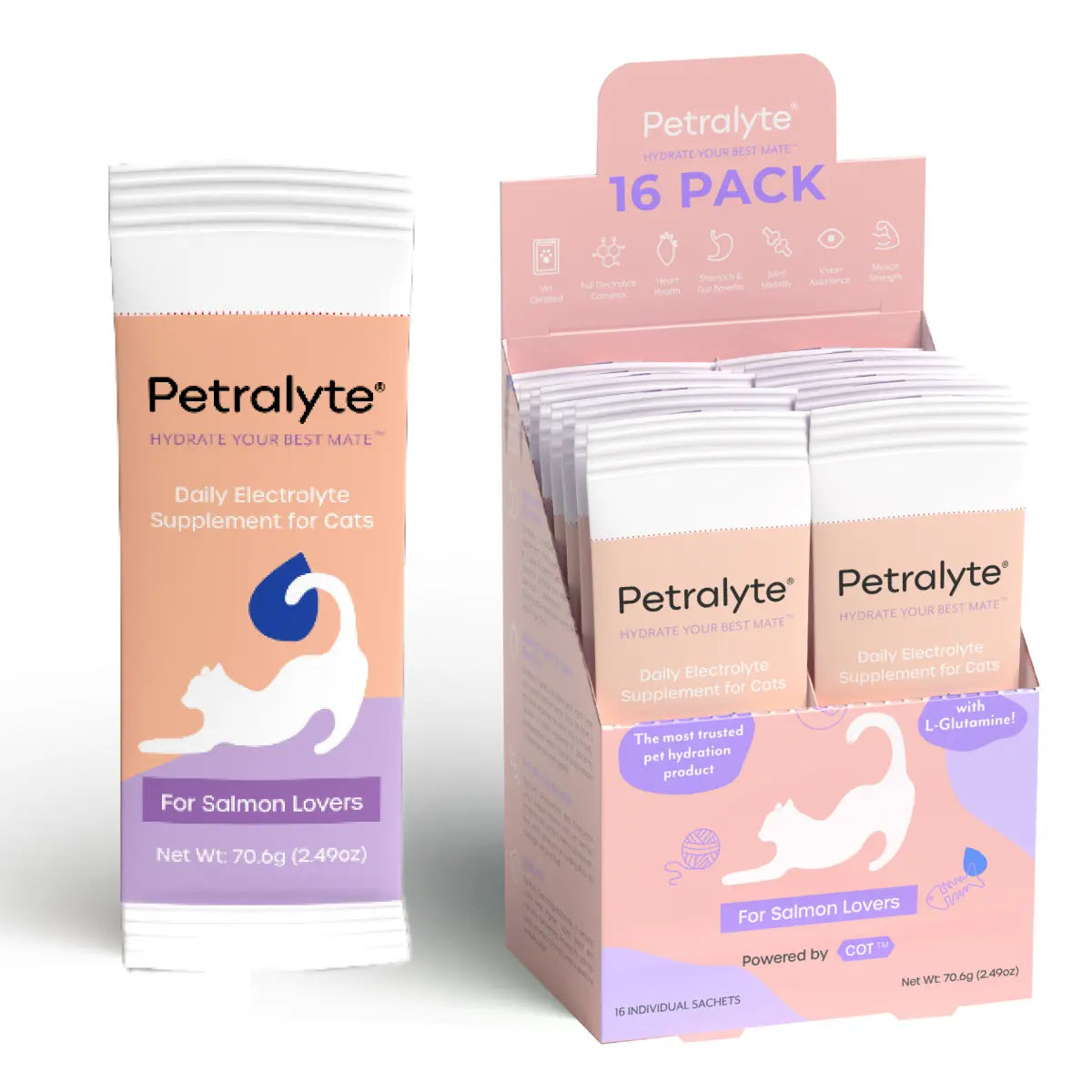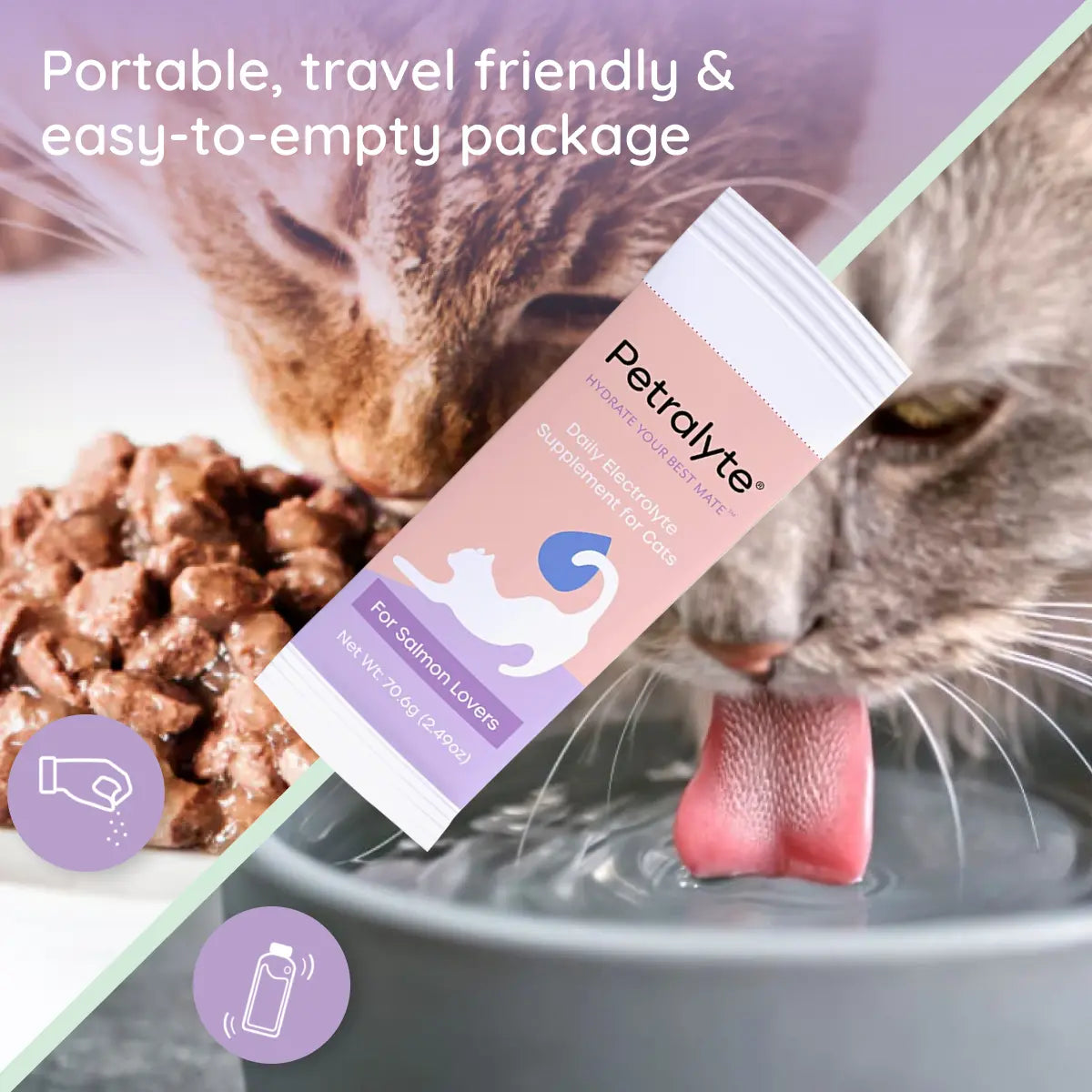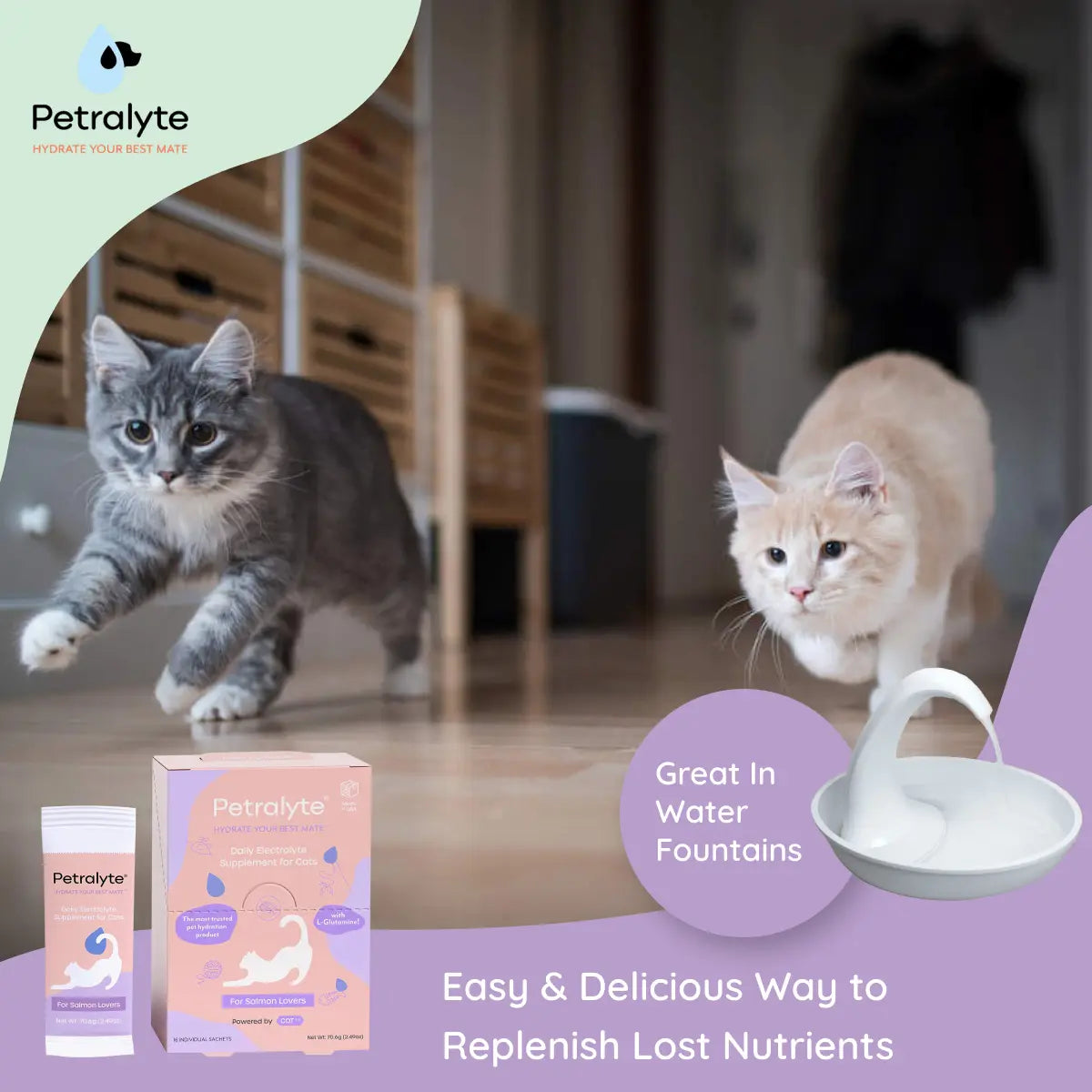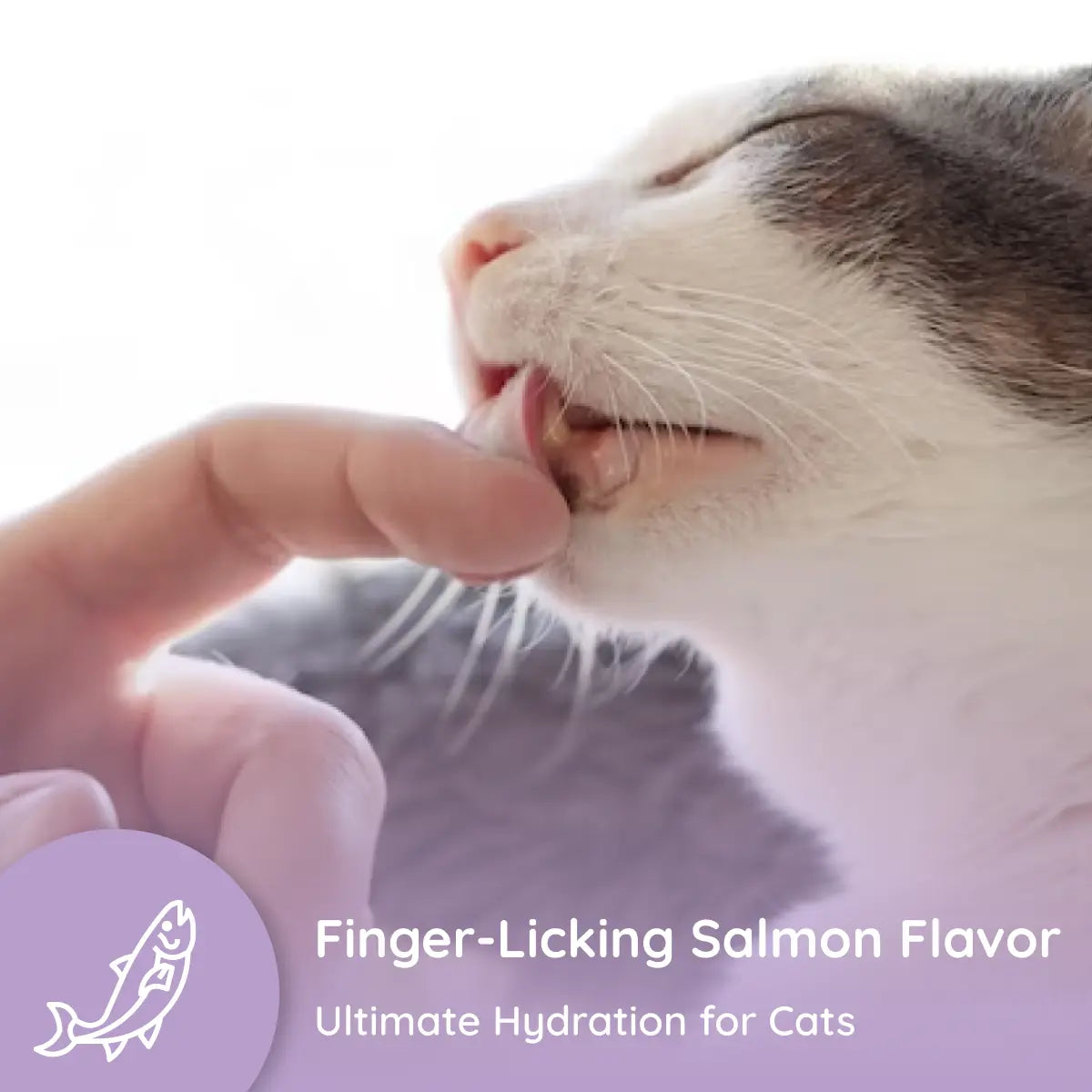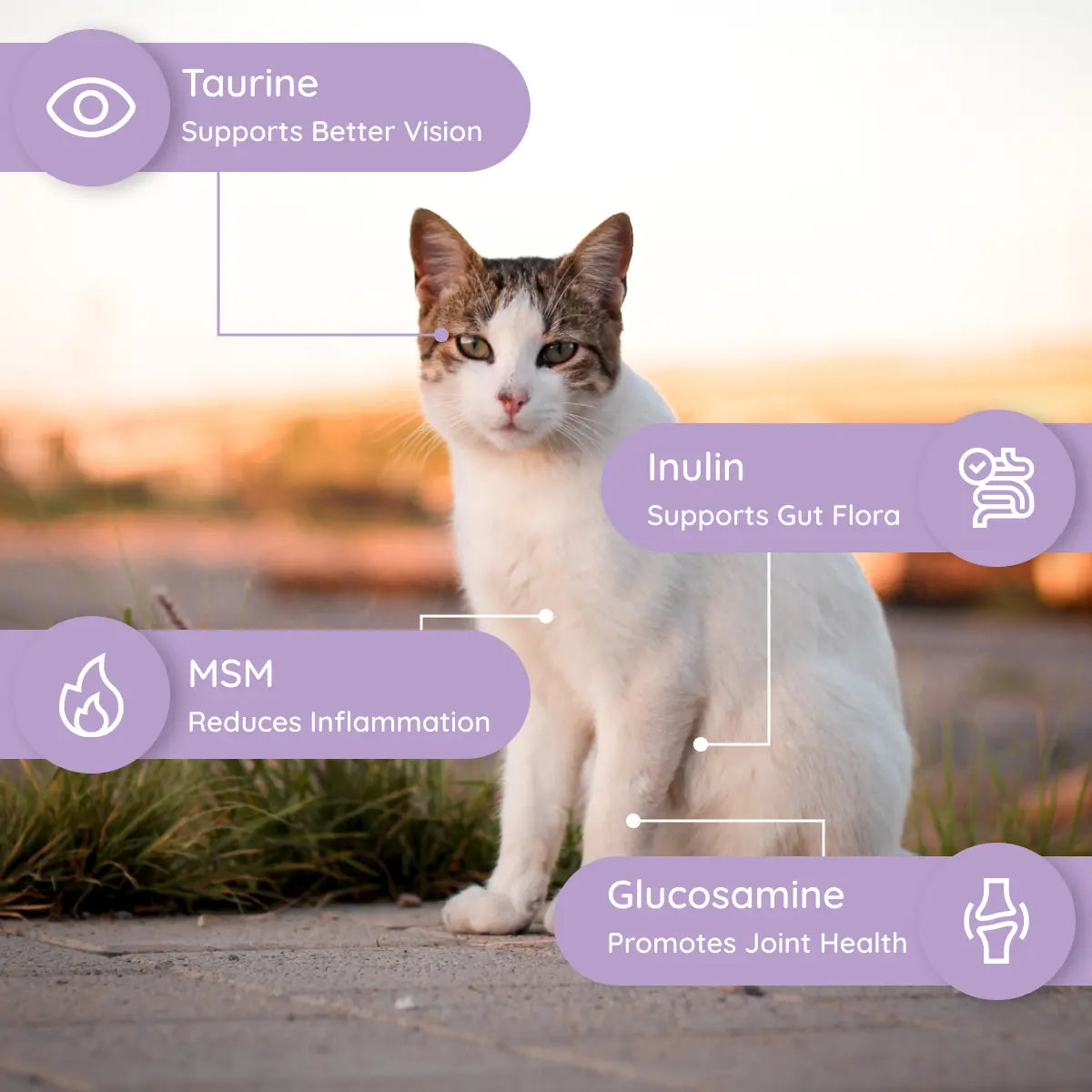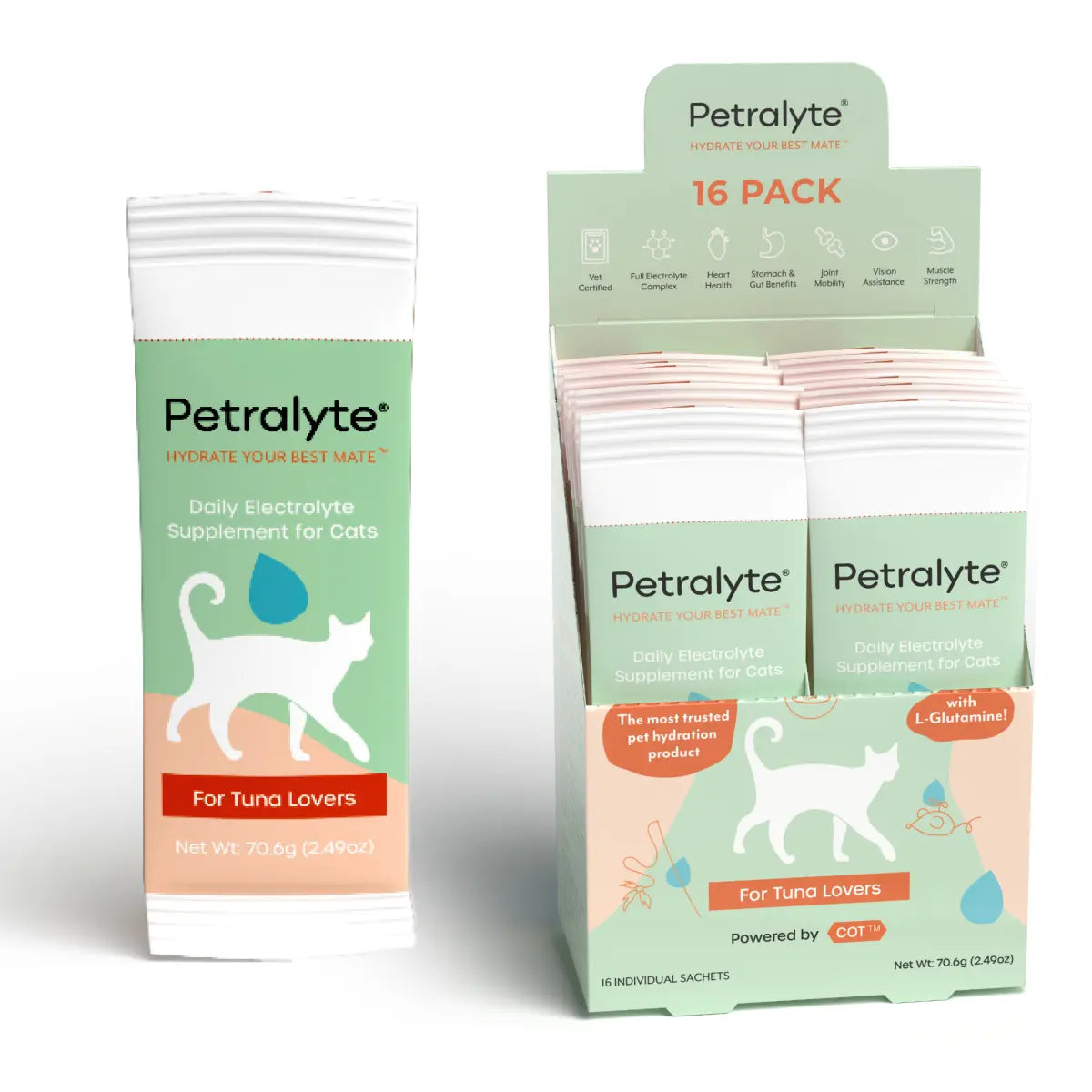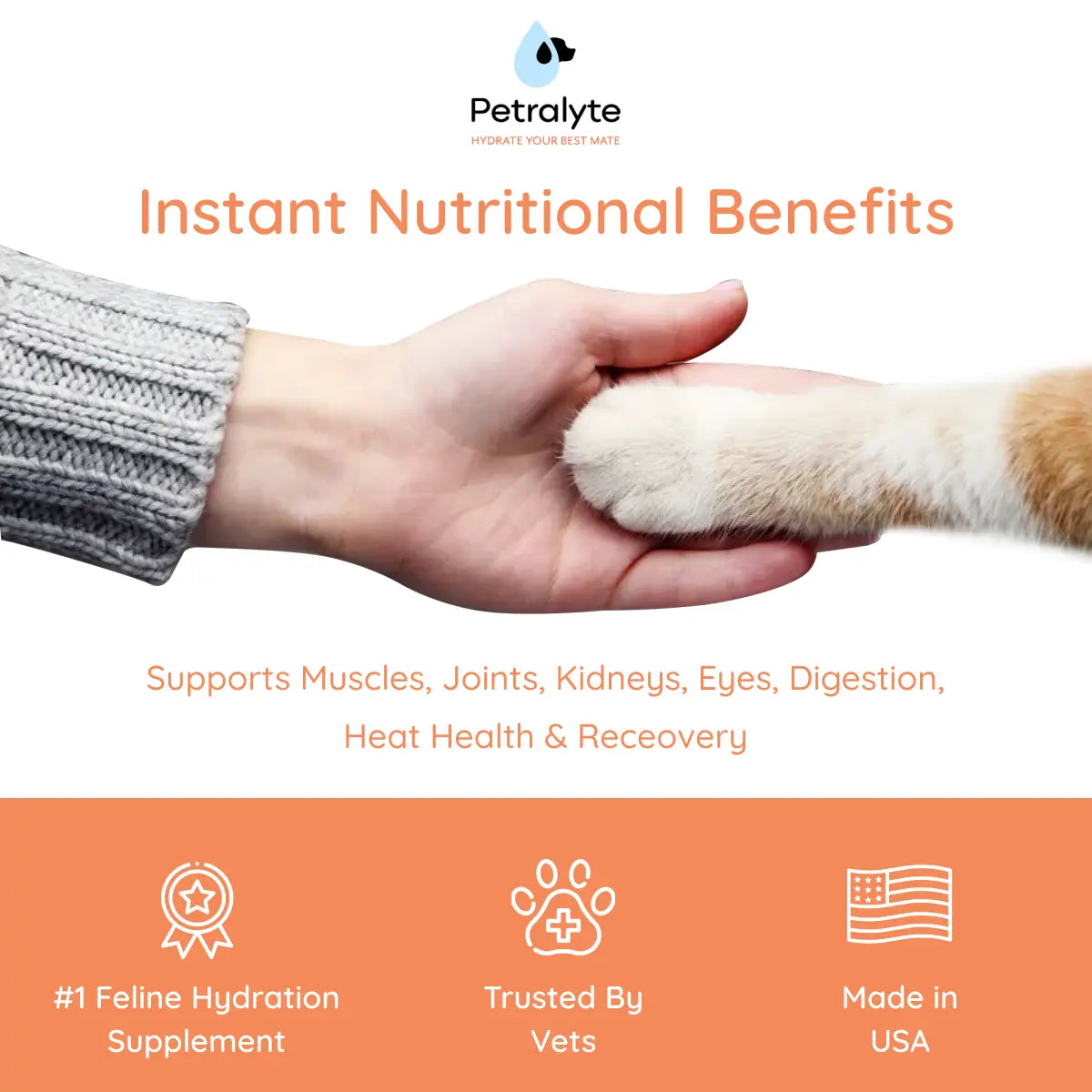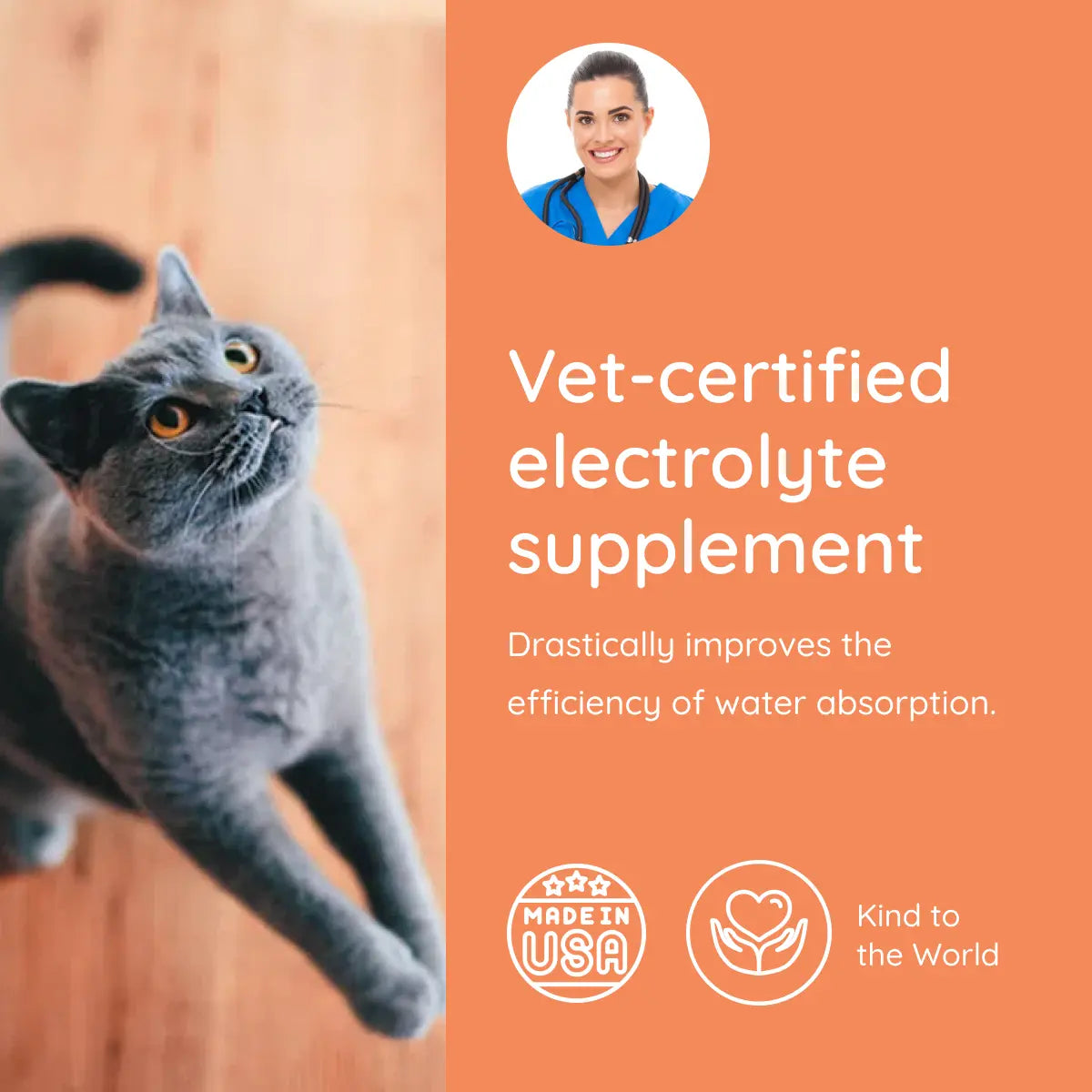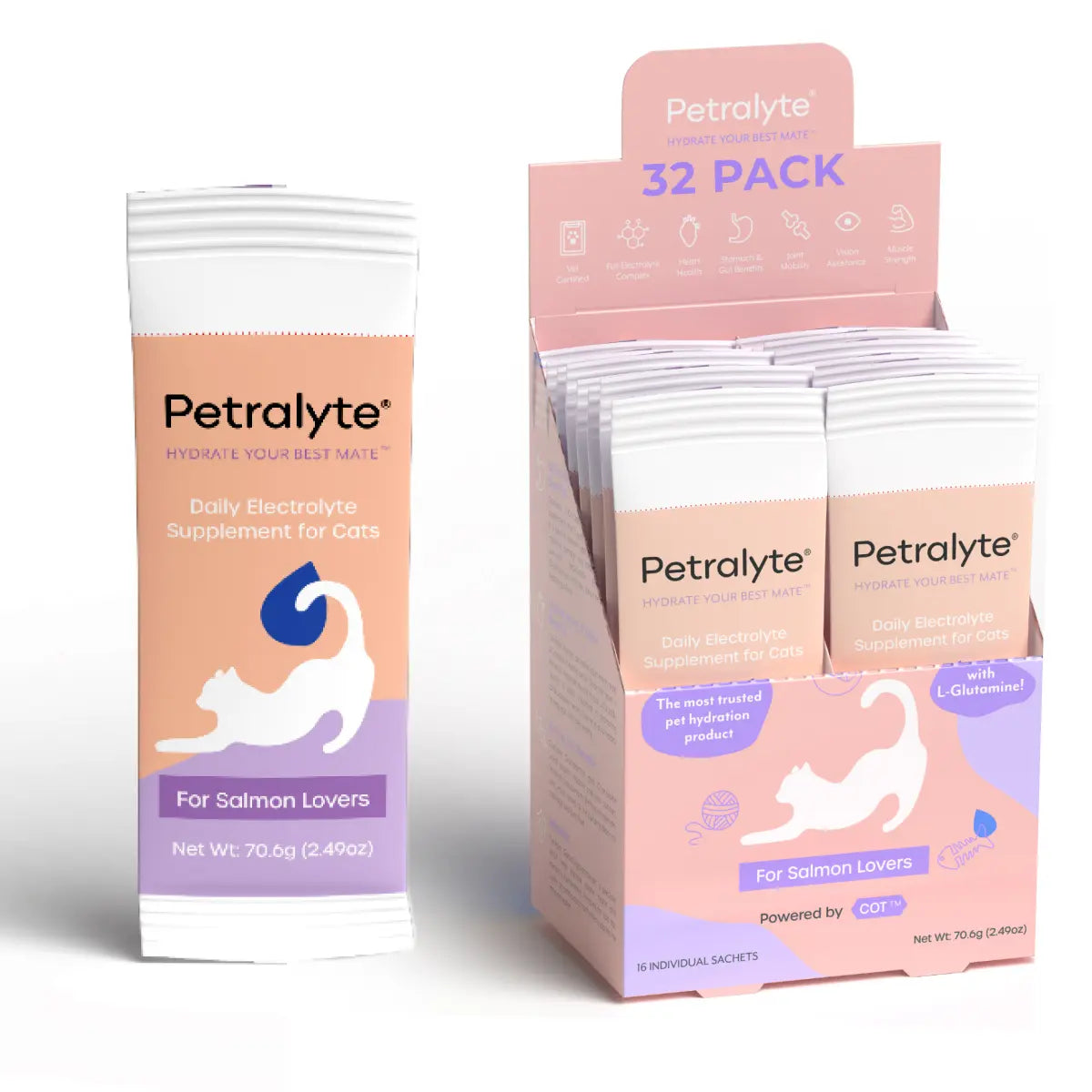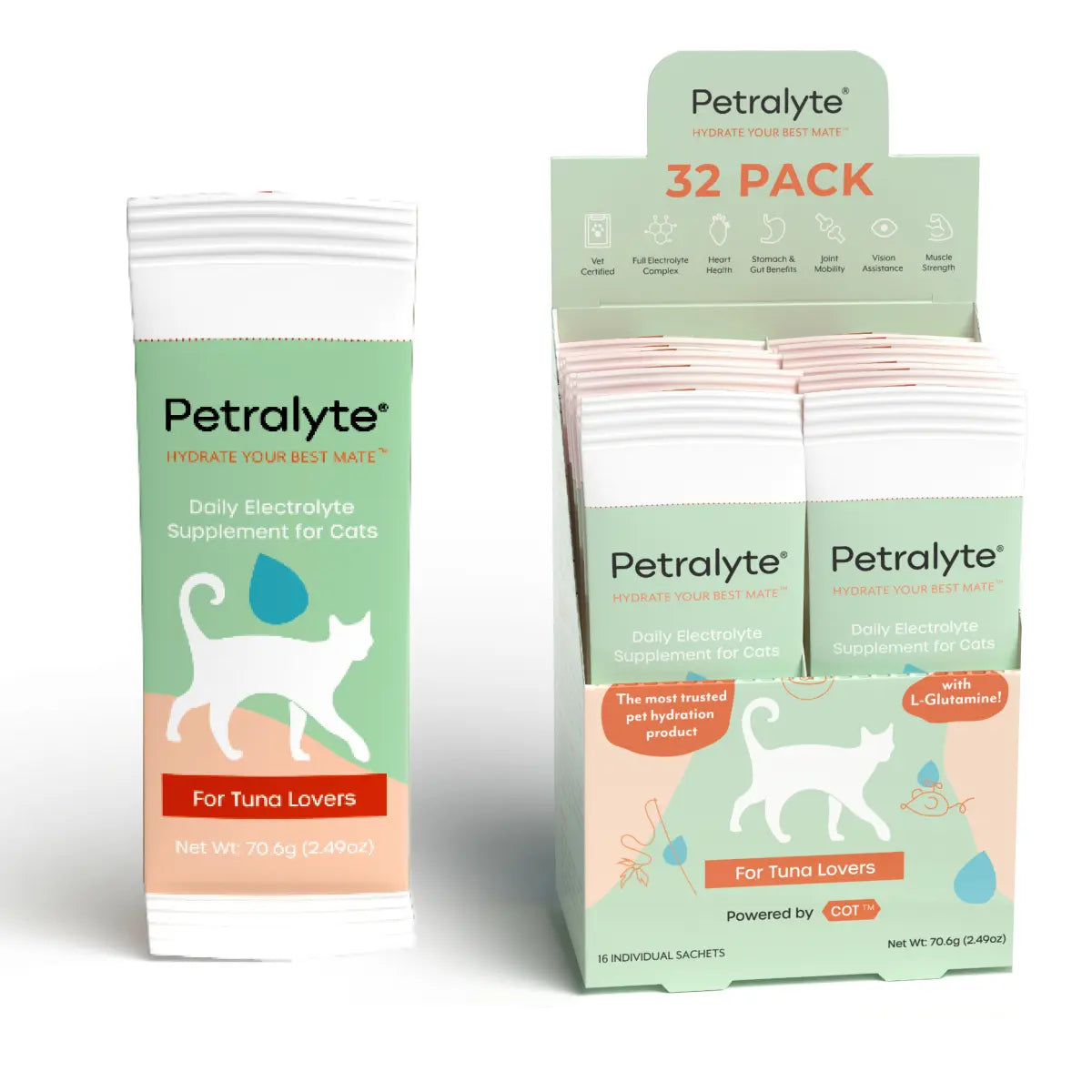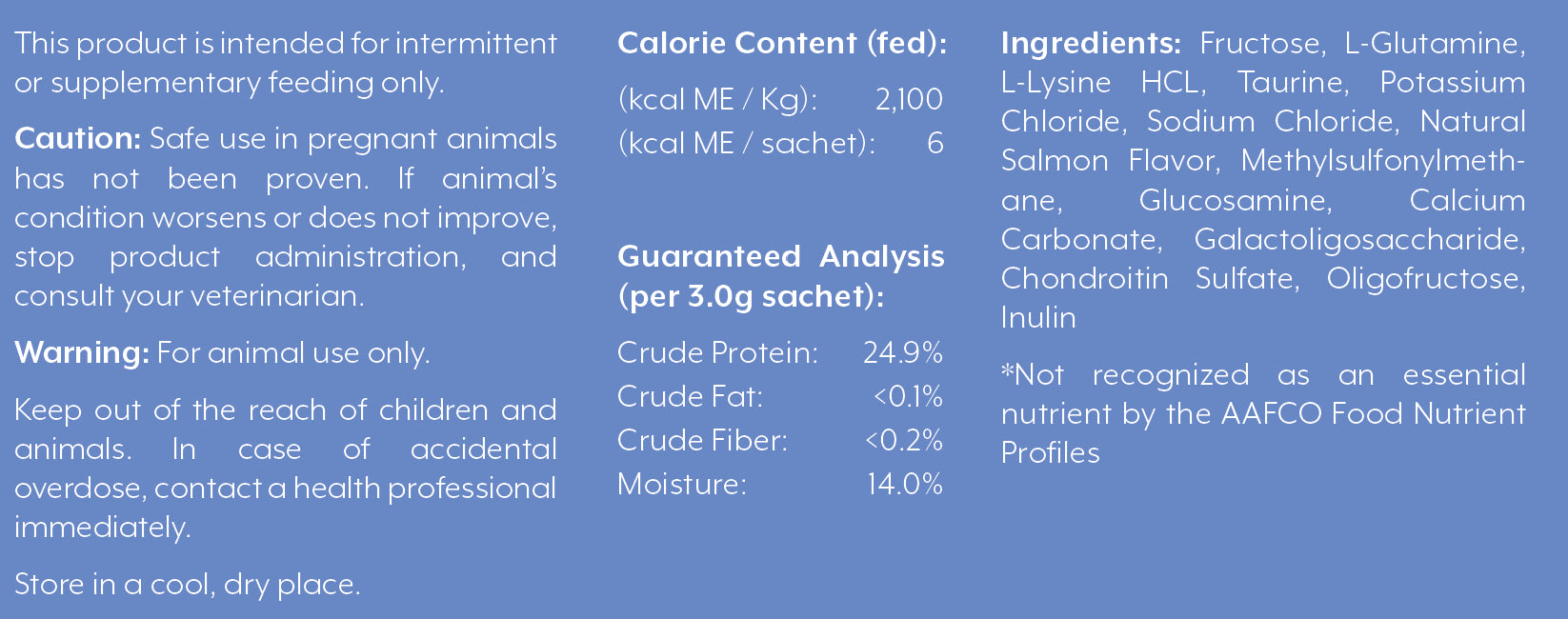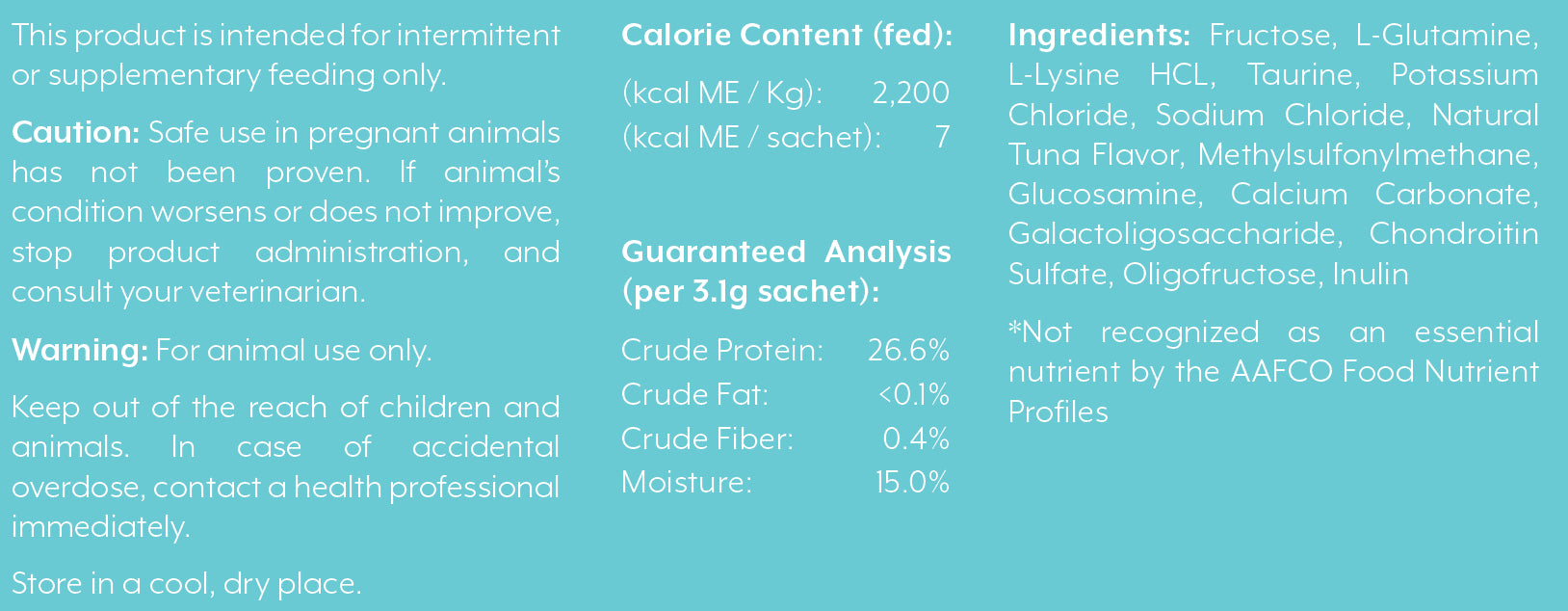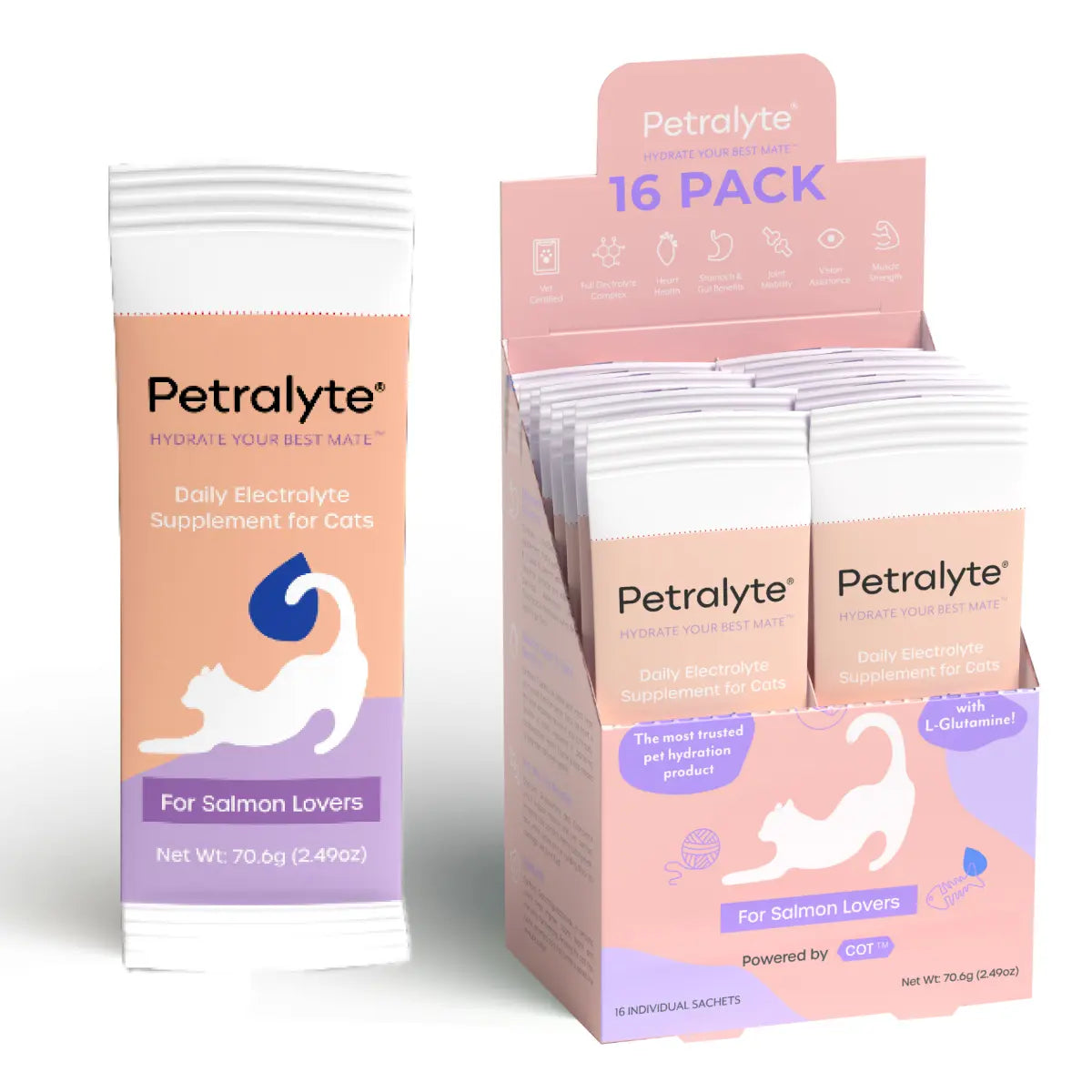
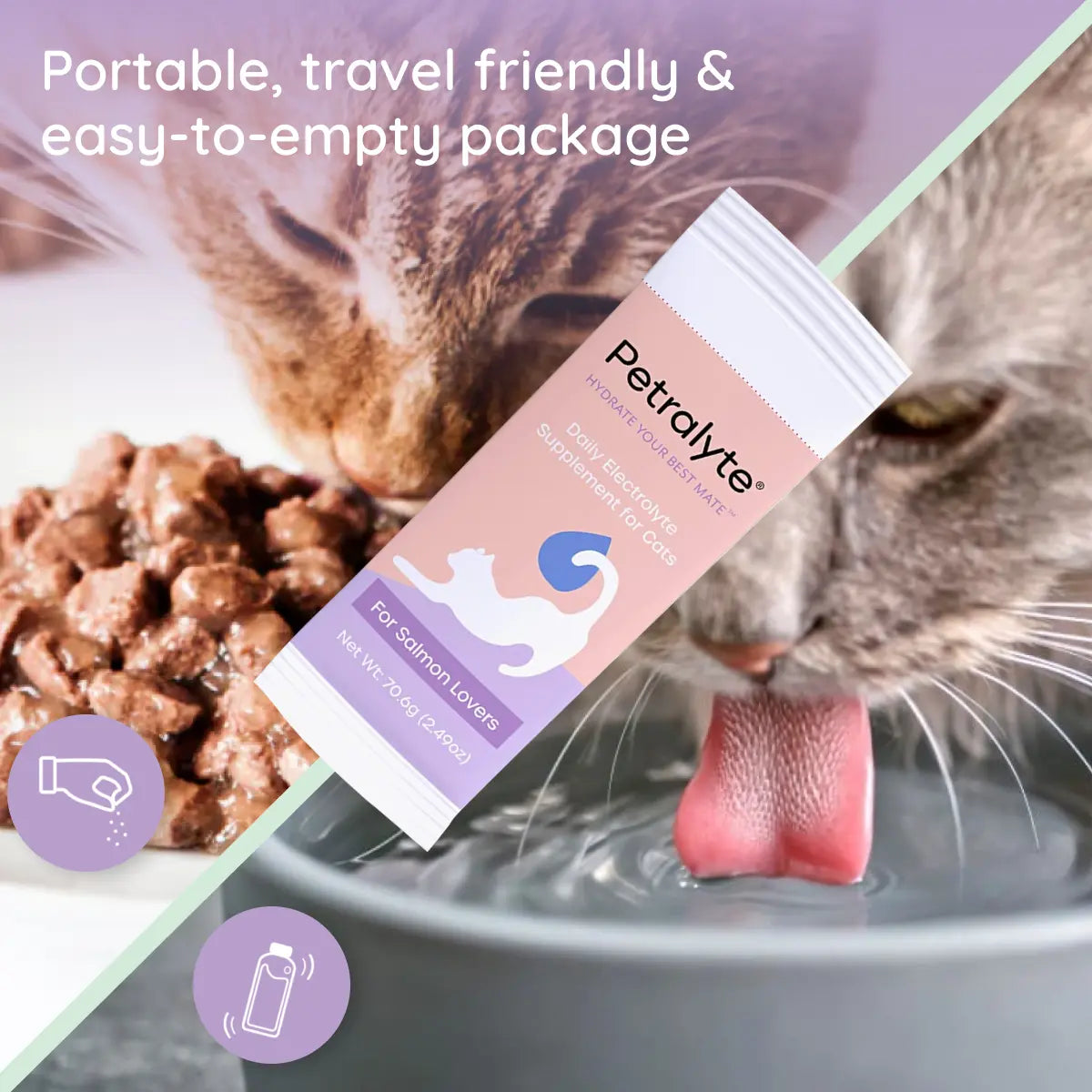
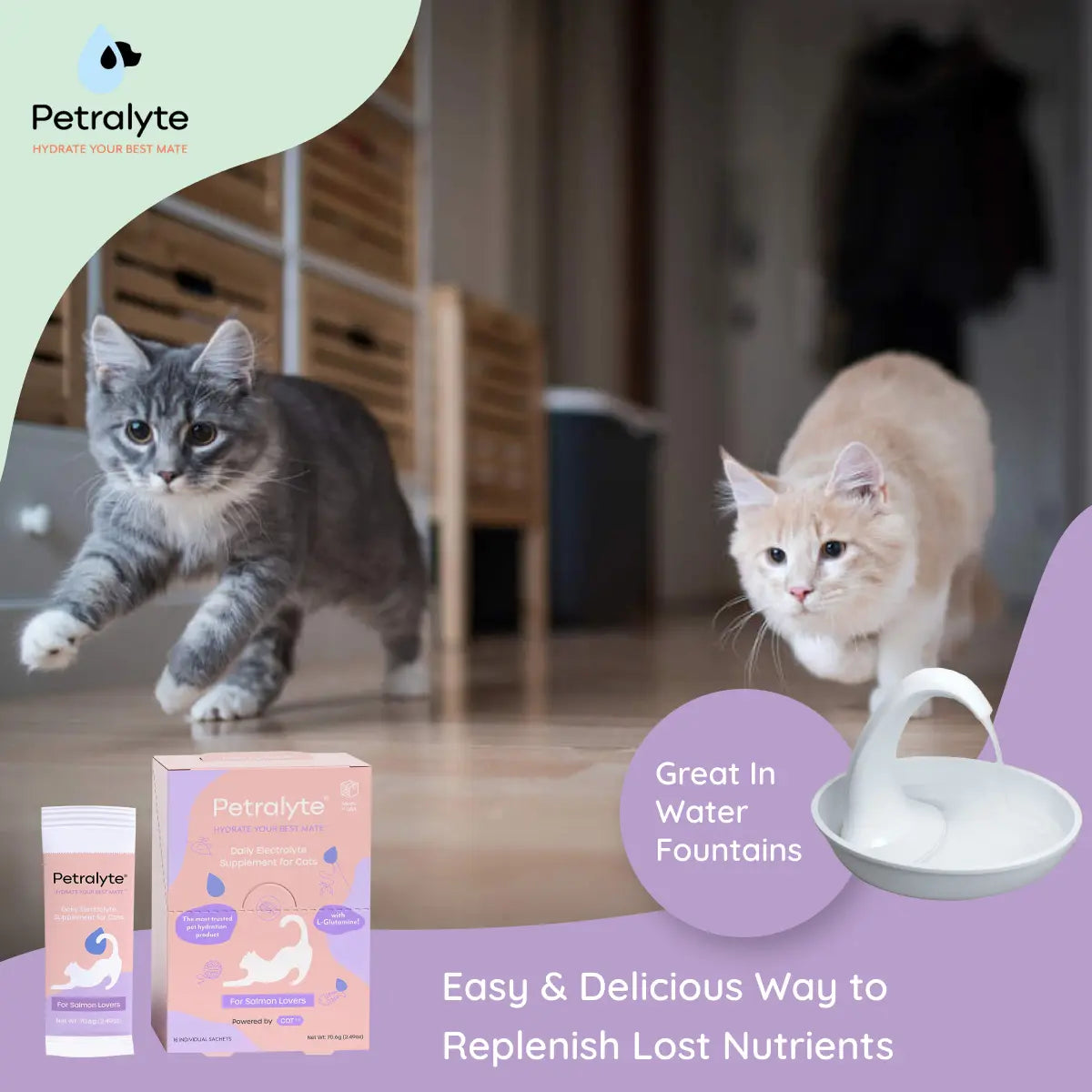
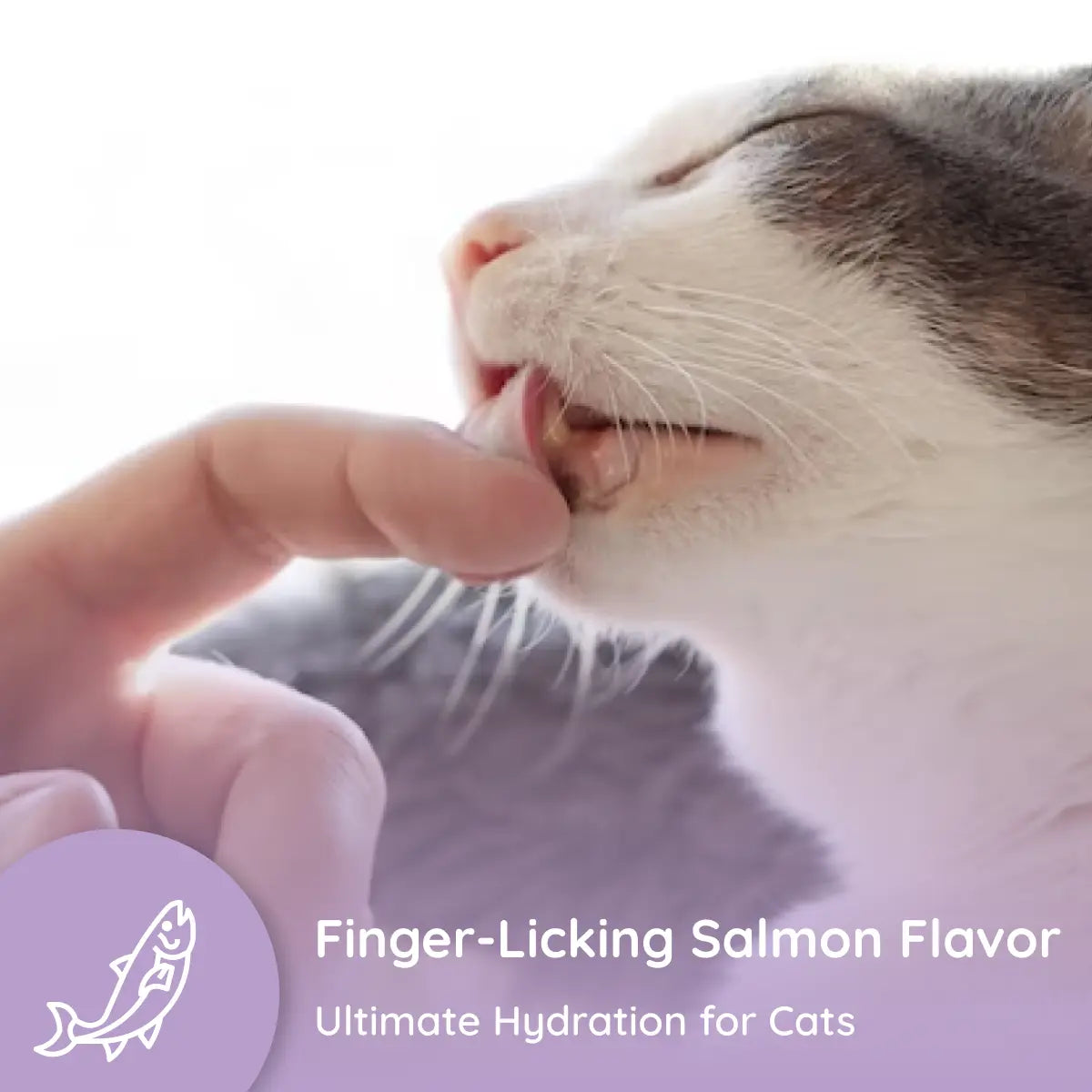
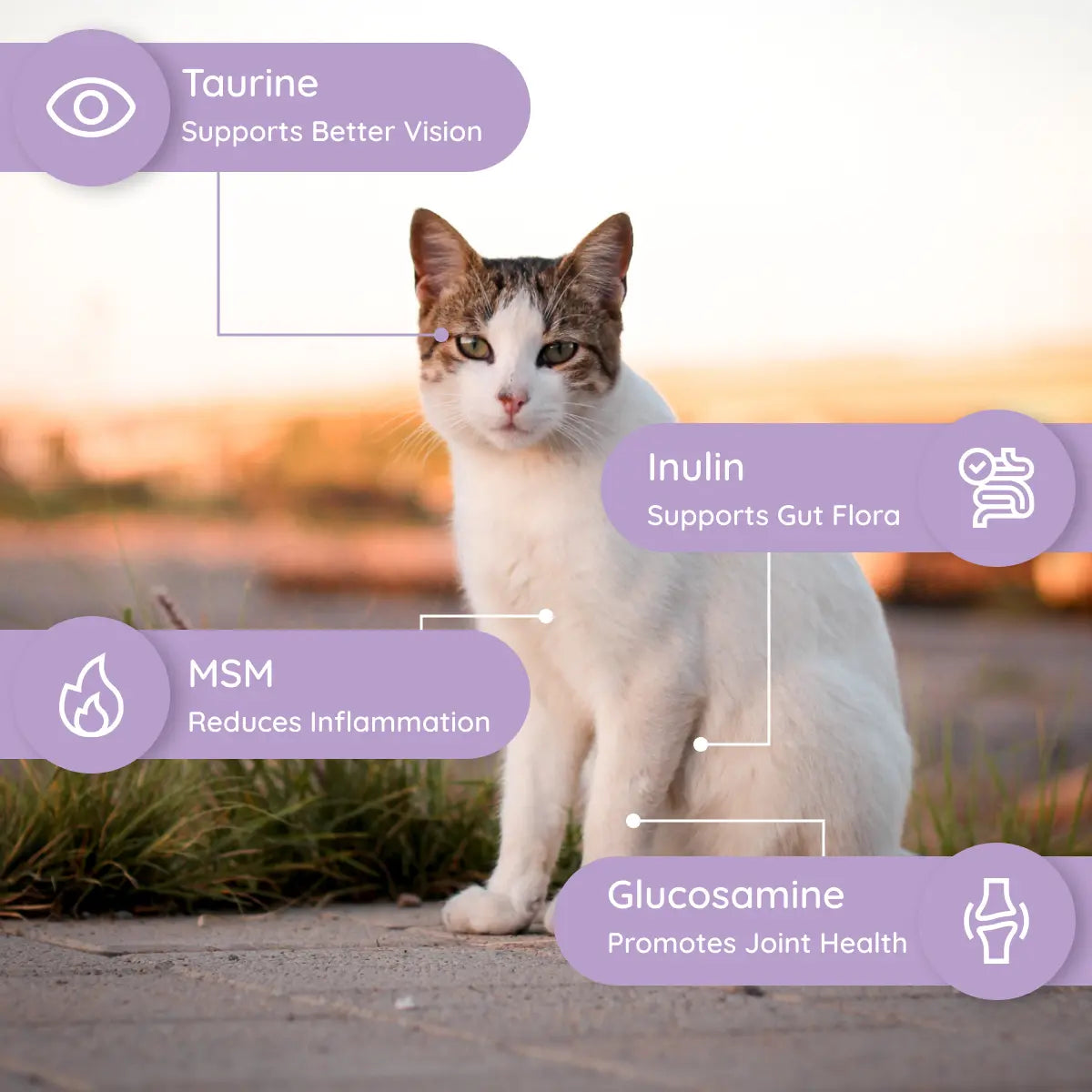
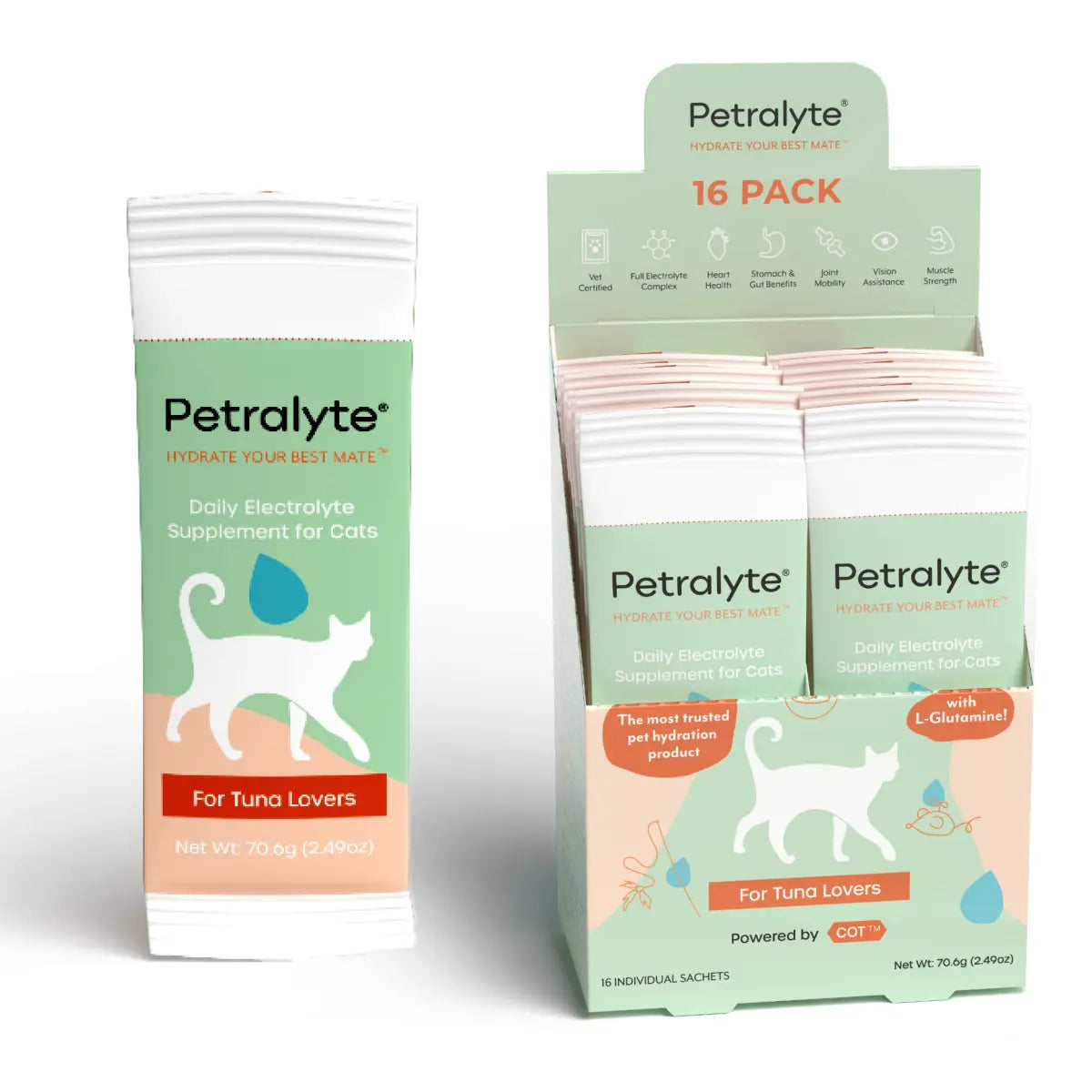
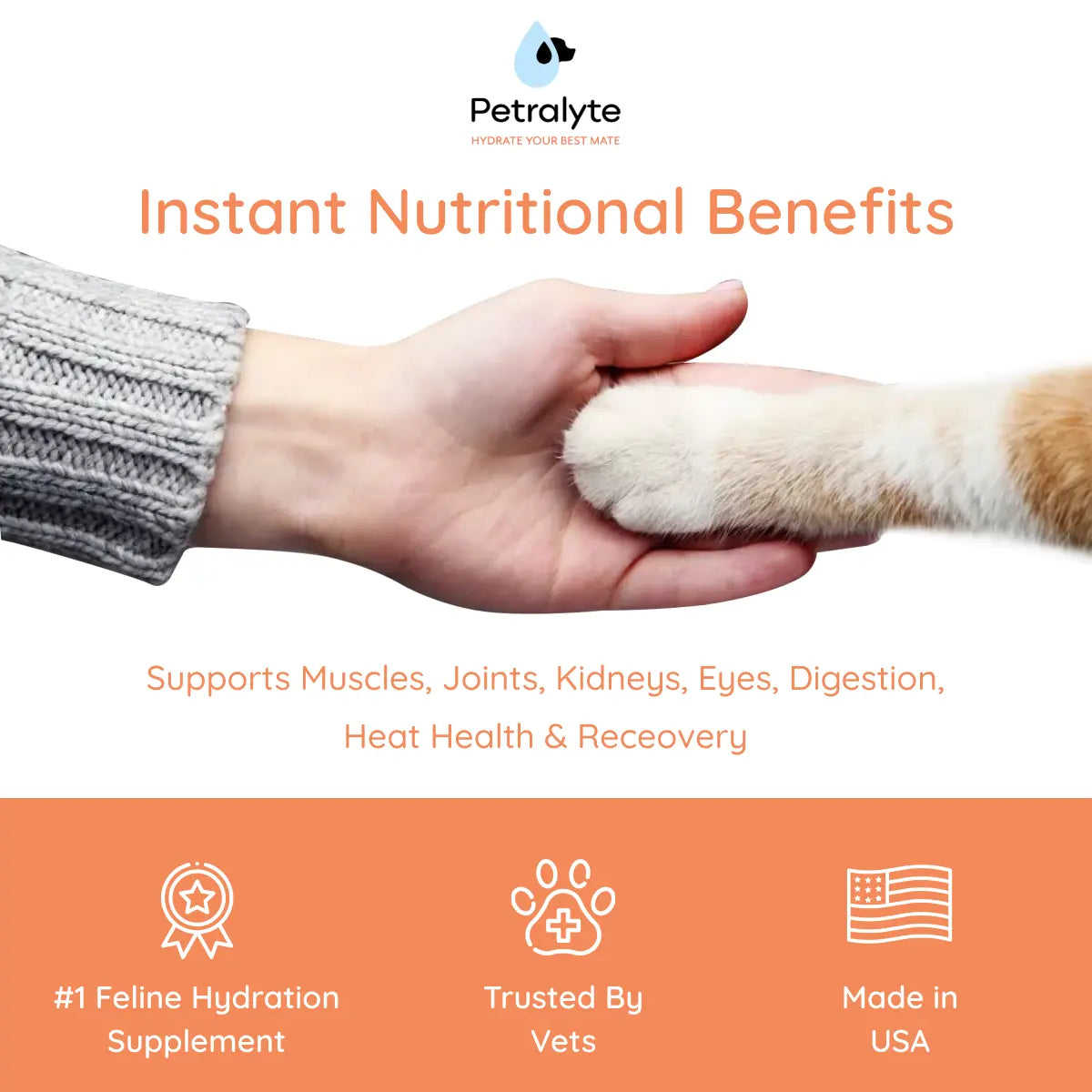
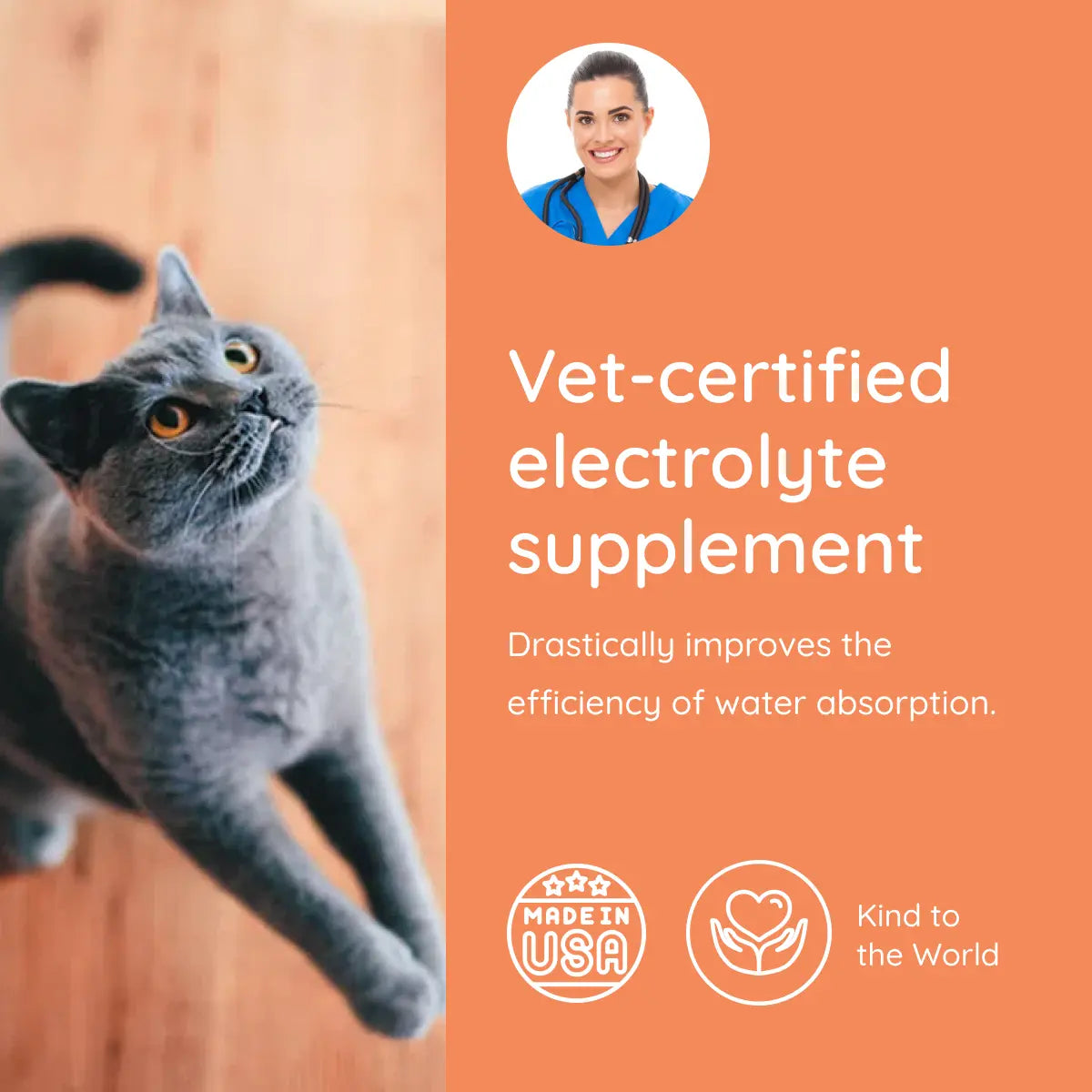
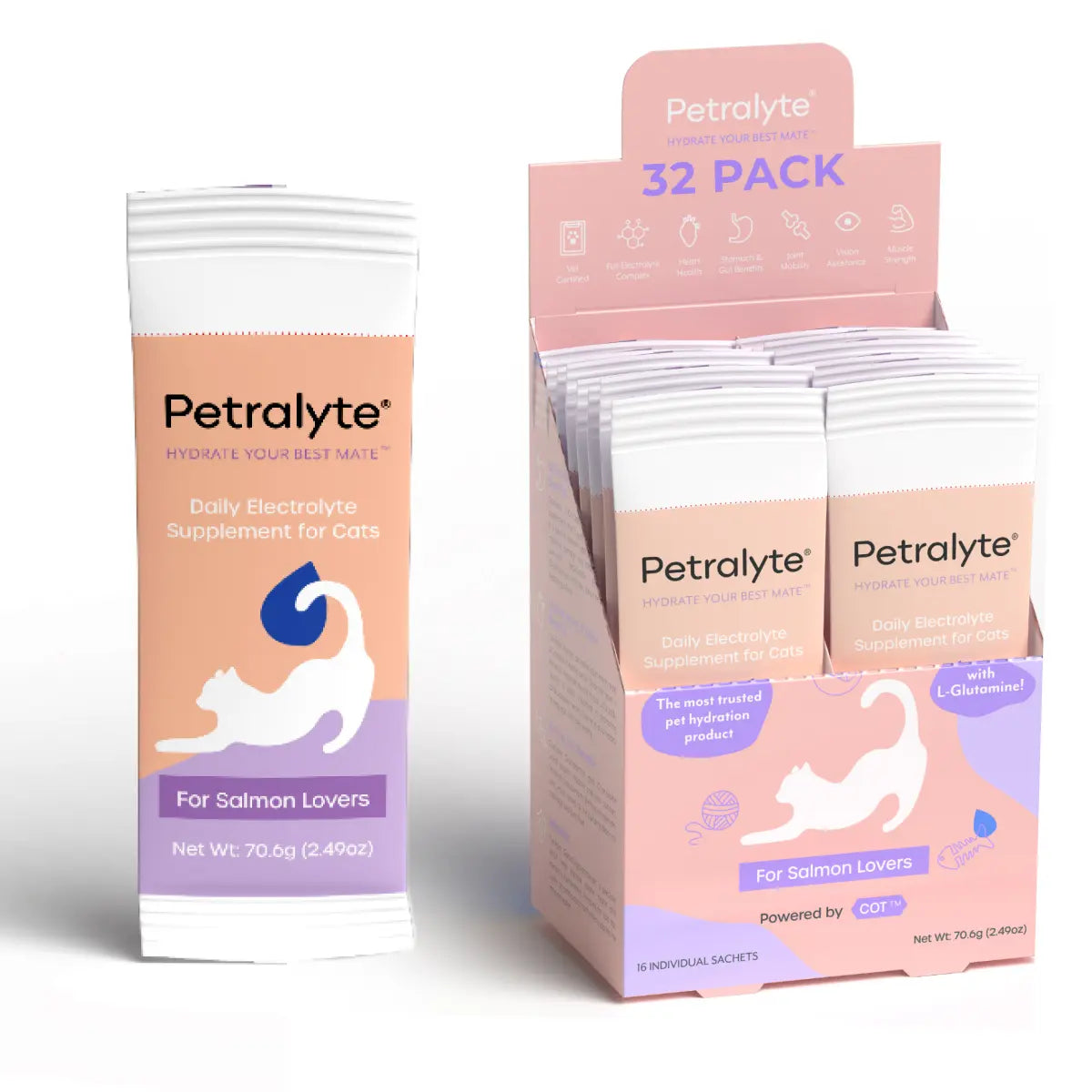
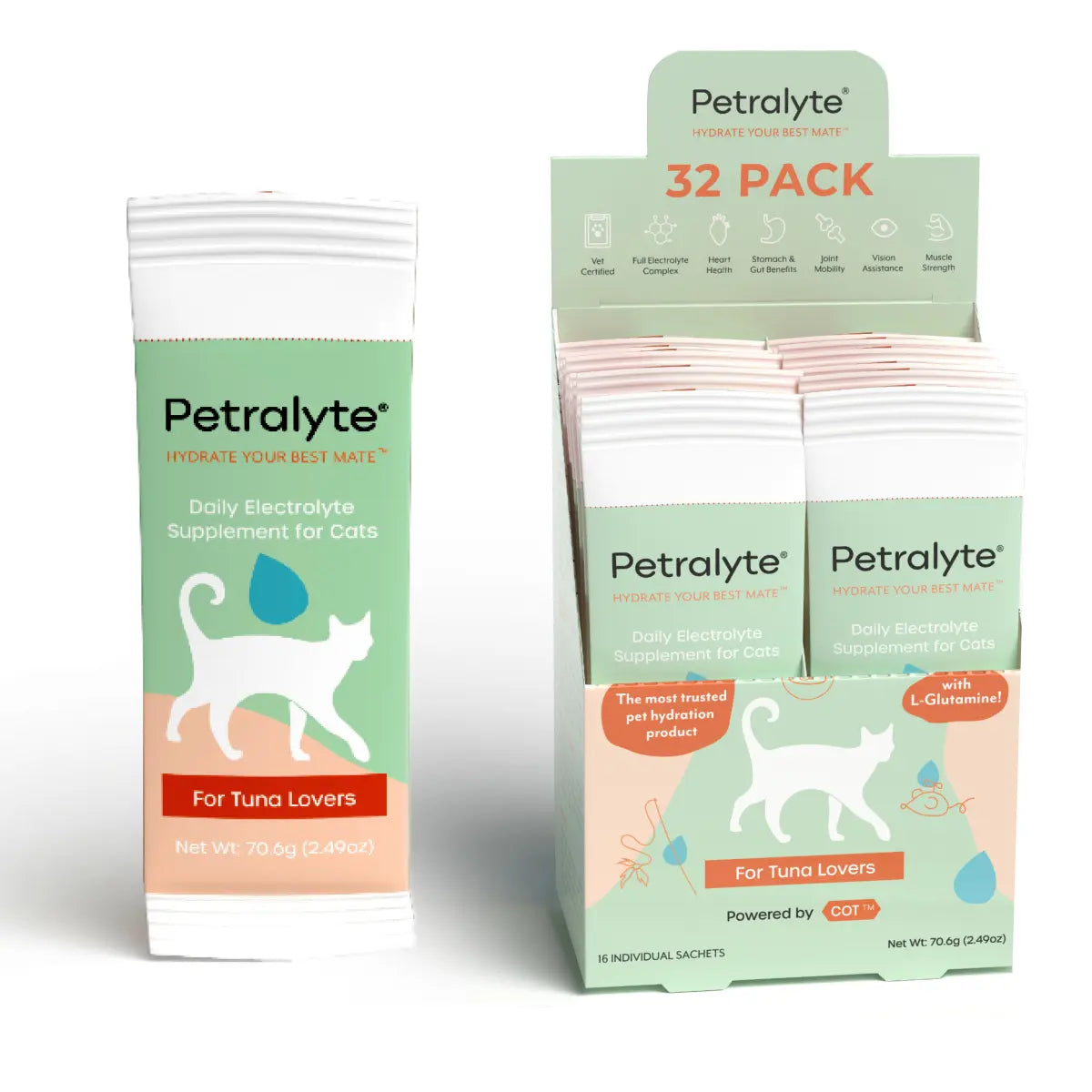
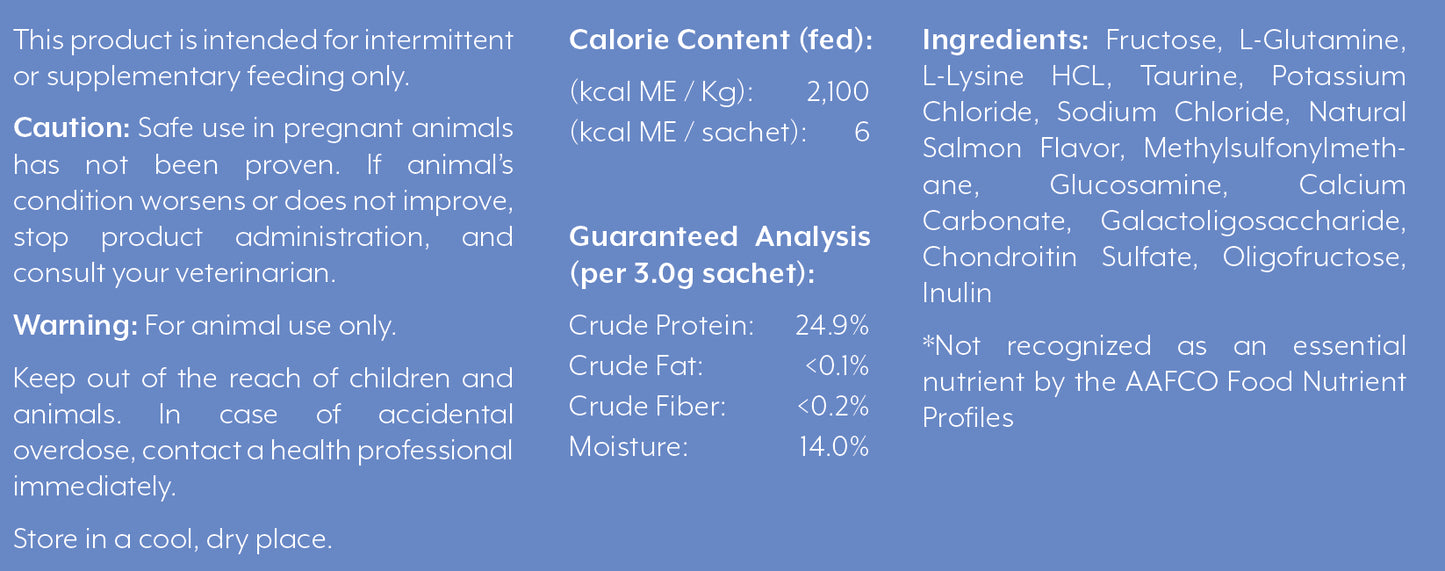
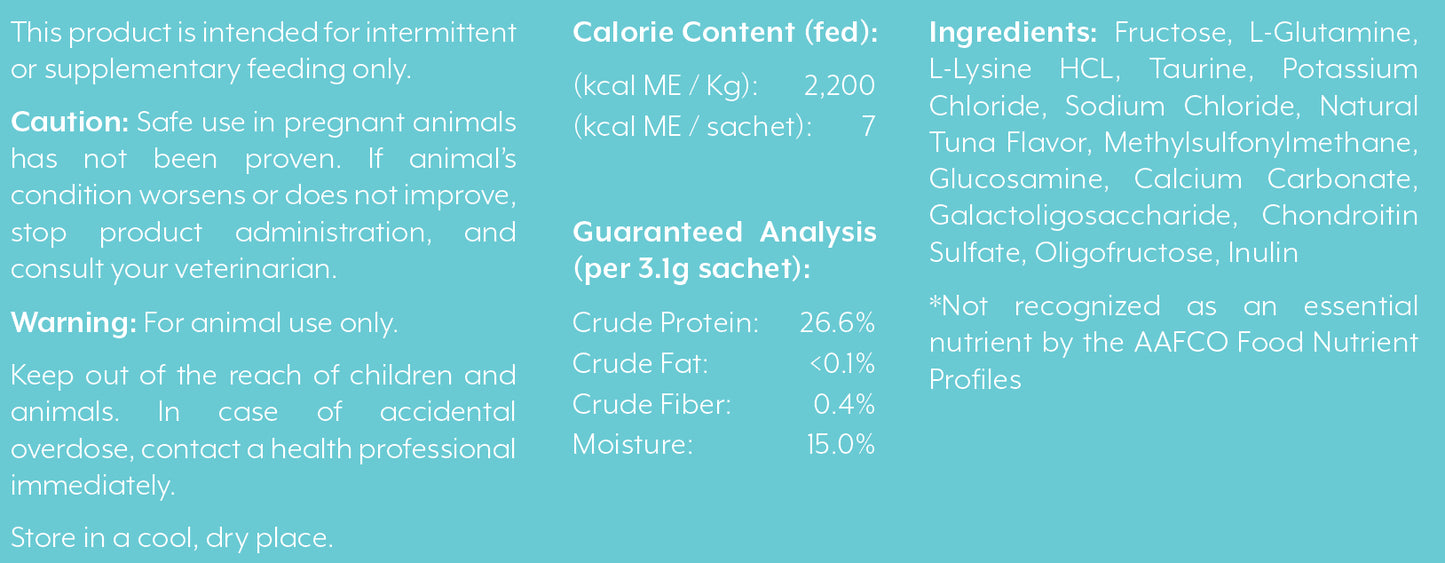
Why Your Cat Might Need More Than Water
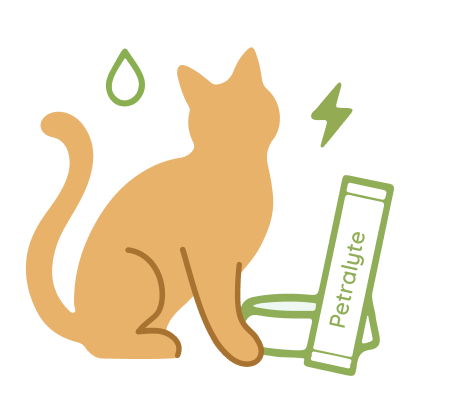
Low Water Intake
Most cats don’t drink enough - leading to hidden health issues
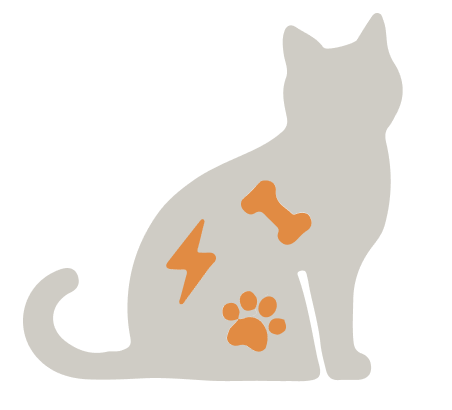
Fatigue, Dehydration and Discomfort
Even mild dehydration can affects joints, digestion and vitality
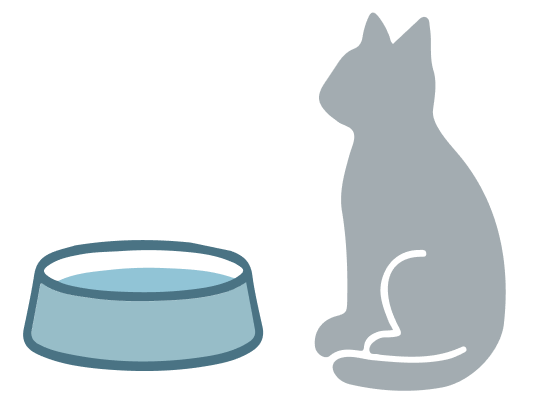
Hydration + Vitality Restored
Petralyte supports daily wellness - hydrating and nourishing from the inside out
8-in-1 Benefits in Every Sip
From hydration to heart health, Petralyte helps support your cat’s daily wellness—one easy sachet at a time.
Hydration
Helps replenish fluids and essential electrolytes—especially important for cats that don’t drink enough water.
Joint Mobility
Supports flexibility and comfort with key nutrients like Glucosamine and Chondroitin.
Digestive Health
Prebiotics nourish healthy gut bacteria to support digestion and reduce discomfort.
Heart Support
Taurine helps maintain normal heart function, especially in aging cats.
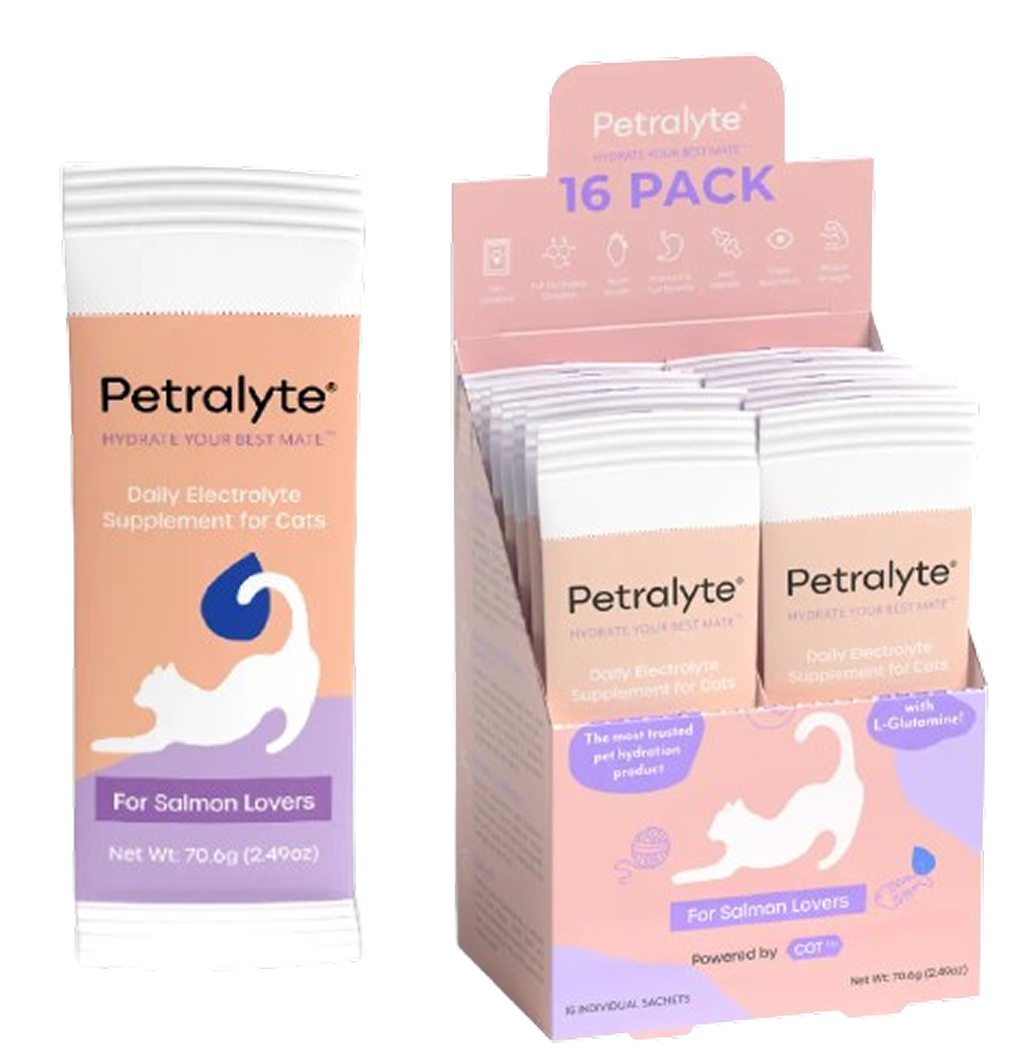
Immune Support
Formulated with ingredients that contribute to a healthy immune response.
Muscle Recovery
L-Glutamine supports muscle repair and energy after activity or illness.
Vision Health
Taurine also plays a vital role in supporting healthy vision in cats.
Daily Vitality
Backed by essential nutrients that help your cat stay playful, active, and balanced.
What Makes Petralyte Different
Designed with intention—for cats who need extra support and pet parents who want simple, consistent care.

Glucosamine + Chondroitin
For joint comfort and mobility

Taurine + L-Glutamine to support
hearth, muscle and vision health

Prebiotics to nourish a healthy gut
and support digestion

Savory Tuna and Salmon flavors
that cats naturally enjoy

Vet Formulated with no fillers,
artificial flavors, or additives
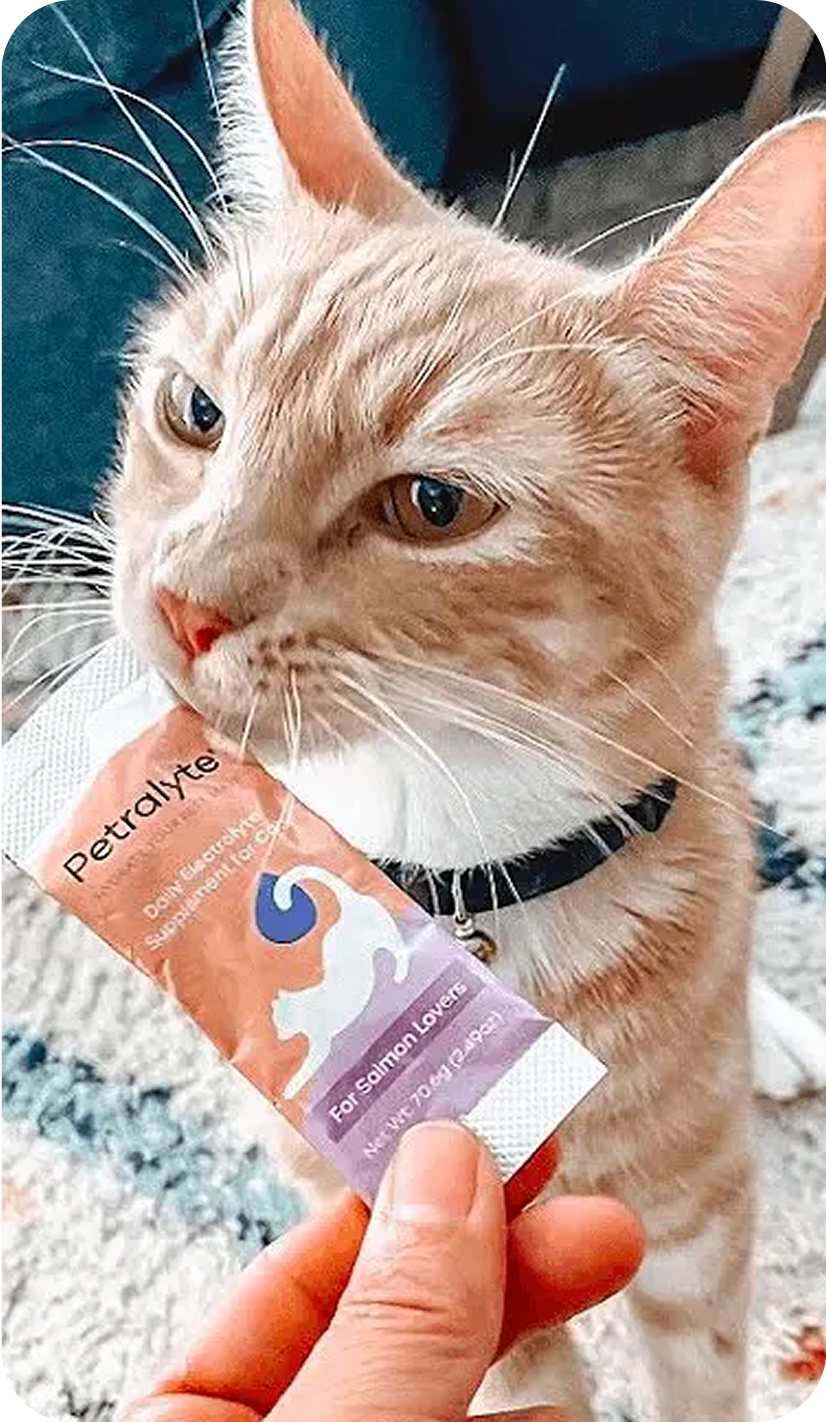
Simple for You. Tasty for Them.
Mix one sachet into water or wet food—no pills, powders, or guesswork.
Open a sachet
Mix with food or water
Serve once daily
Hydration and health made easy Tip: Picky eater? Mix into wet food for better acceptance.
Join the Movement
Choosing Petralyte means you're not only hydrating your pet but also supporting a global effort to help animals in need. Every purchase donates a serving to those who need it most, ensuring life saving hydration and improved well-being for pets and wildlife alike. Join us in making a tangible difference—one serving at a time.

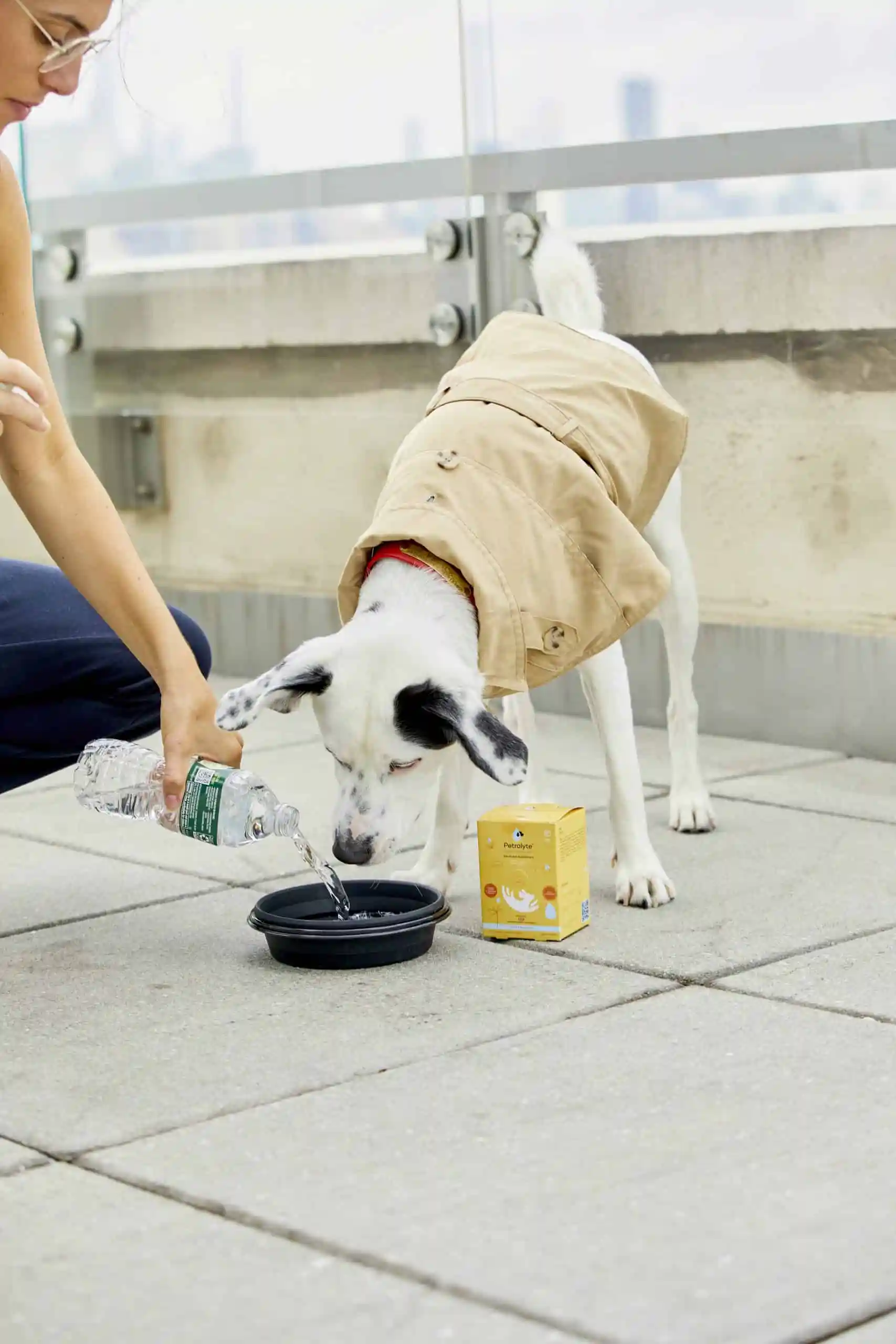

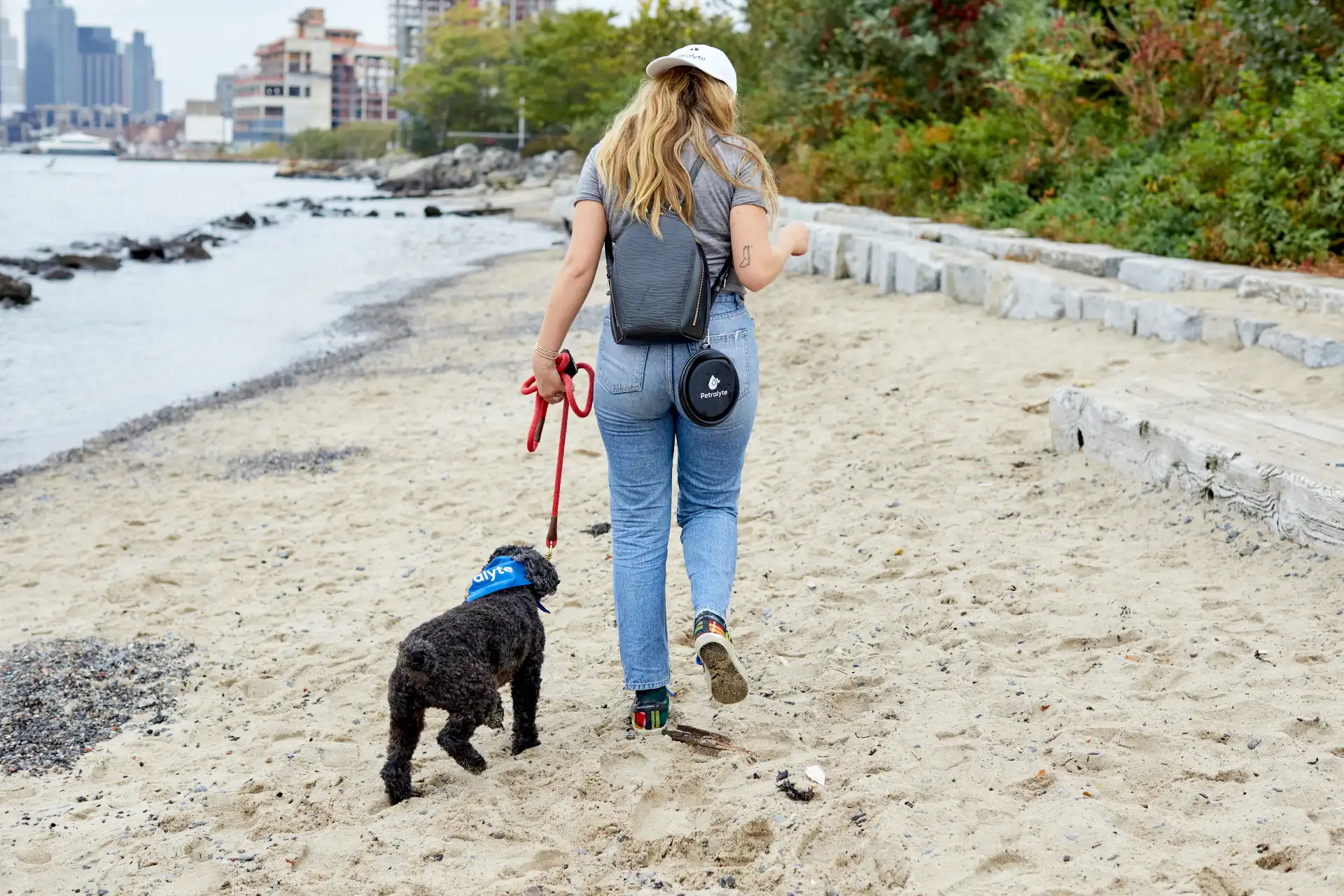
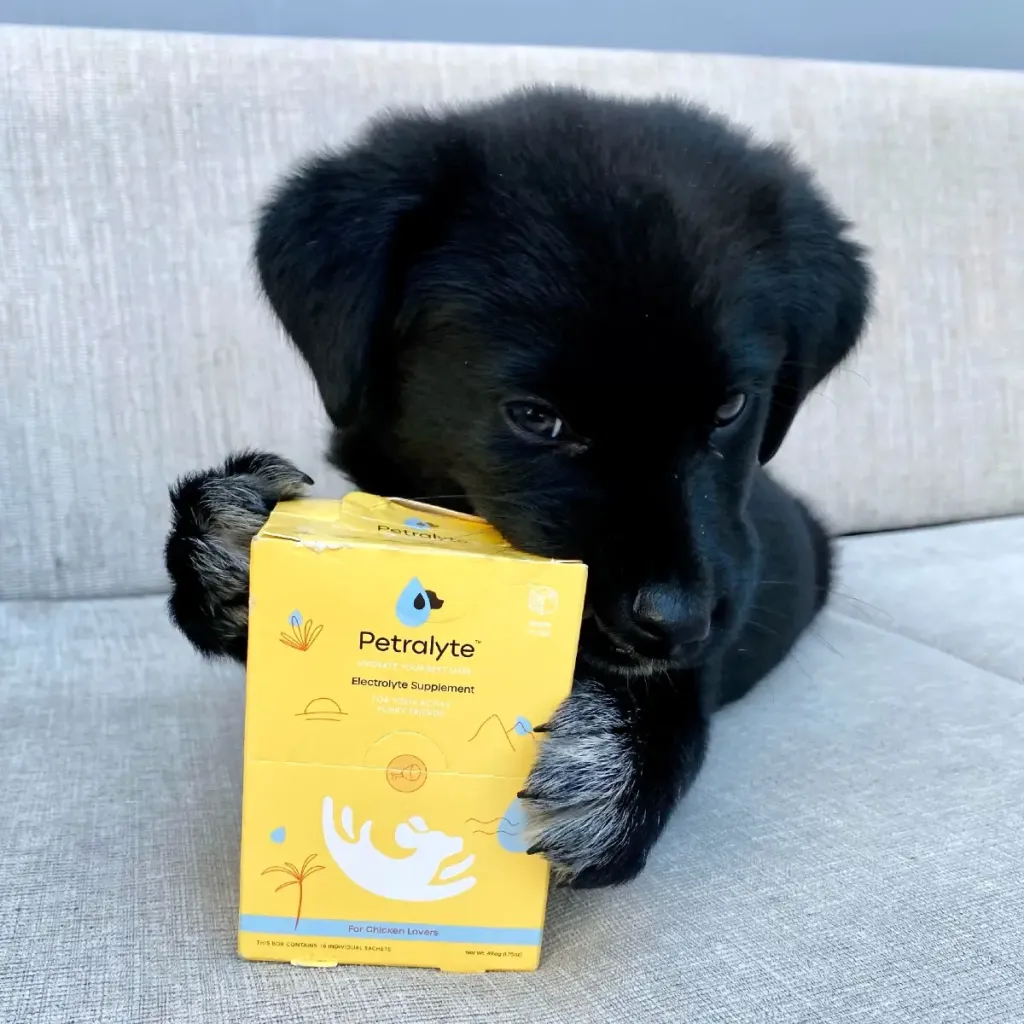
Loved by Customers
We let our customers speak for themselves!
Rated 4.60 out of 5 based on 81 reviews from Pet Parents
The Most Common Questions
From Cat Owners
How do I know if my cat is dehydrated or in need of electrolytes?
Signs of dehydration in cats include dry mouth and gums, sunken eyes, decreased skin elasticity, lethargy, and a decrease in urine production. If your cat is experiencing any of these symptoms, they may be dehydrated and in need of electrolytes.
What are the symptoms of electrolyte imbalances in cats?
Symptoms of electrolyte imbalances in cats can include weakness, muscle tremors or cramps, difficulty breathing, rapid heart rate, and changes in urine production or color.
Can I give my cat human electrolyte drinks, or do they need special electrolyte solutions for cats?
It is not recommended to give human electrolyte drinks to cats, as they may contain ingredients that are toxic to cats or may not be properly balanced for their specific needs. Instead, it is best to use electrolyte solutions specifically designed for cats.
How do I administer electrolyte solutions to my cat?
Electrolyte solutions for cats can typically be mixed with water and given to the cat to drink, or added to their food. Be sure to follow the product’s dosage instructions and consult with your veterinarian for guidance on the appropriate amount to give.
Are there any risks or side effects associated with giving electrolytes to cats?
In general, electrolyte solutions are safe for cats when used as directed. However, it is always best to consult with your veterinarian before starting any new supplement regimen, as electrolyte imbalances can be serious and may require medical treatment.
What are some common electrolyte imbalances that can affect cats, and how are they treated?
Common electrolyte imbalances that can affect cats include low levels of sodium, potassium, and magnesium. These imbalances can be caused by dehydration, illness, or certain medications. Treatment may involve administering electrolyte solutions or other medications, and in severe cases, hospitalization may be necessary.
Can I give my cat electrolytes as a preventive measure, or should they only be given when needed?
It is generally recommended to give electrolytes to cats as a preventive measure. It is best to provide your cat with adequate hydration and a balanced diet to help prevent electrolyte imbalances.
Are there any foods or supplements that can naturally provide electrolytes for my cat?
Yes, there are some foods and supplements that can provide electrolytes for cats naturally. These include certain fruits and vegetables, such as bananas, sweet potatoes, and leafy greens, as well as certain supplements, such as coconut water and bone broth.
Can electrolyte imbalances in cats be prevented, and if so, how?
Electrolyte imbalances in cats can often be prevented by providing adequate hydration and a balanced diet. Regular exercise and avoiding extreme temperatures can also help to prevent electrolyte imbalances. If your cat is at risk for electrolyte imbalances, such as due to illness or certain medications, be sure to consult with your veterinarian for guidance on prevention and treatment.

